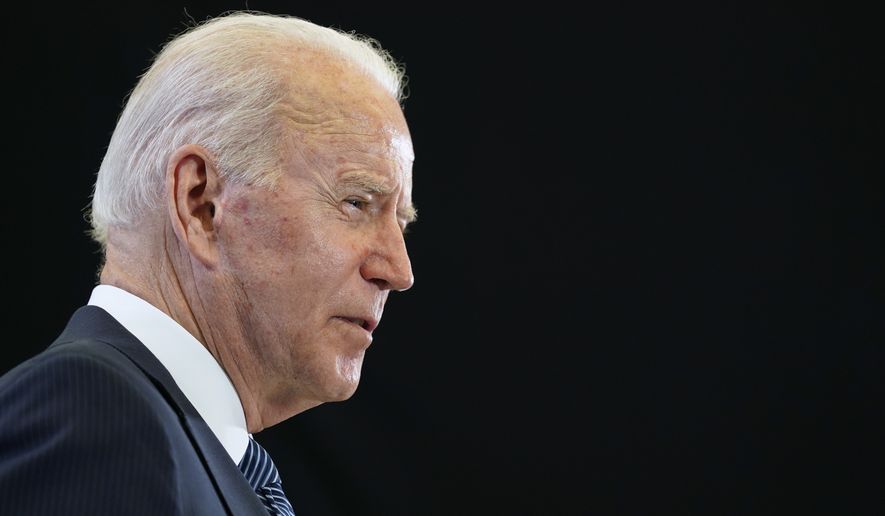America’s energy industry is castigating President Biden’s pledge to end public support for overseas coal projects, seeing the move as the latest manifestation of the Democrats’ “war on coal.”
Ashley Burke, a senior vice president at the National Mining Association, said that setting fuel targets and disparaging coal won’t solve the world’s climate problems.
“Coal remains absolutely critical to providing balance on the grid and underpinning affordability and reliability, particularly as the world transitions to more intermittent, weather-dependent sources of power,” he said.
“We stress that international investments in unabated coal must stop now and we commit now to an end to new direct government support for unabated international thermal coal power generation by the end of 2021,” reads a statement by the nations.
Given that carbon capture is still in the early stages and unable to be widely deployed, the commitment puts pressure on developing nations to jettison coal once and for all.
For America’s coal industry and the more than 50,000 workers it employs, Mr. Biden’s commitment is only the latest skirmish in the “war on coal.”
The term dates back to the tenure of former President Obama who moved to combat climate change by curbing greenhouse gas emissions. To achieve the goal the Obama Environmental Protection Agency imposed stringent regulations on coal, which is one of the nation’s leading sources for producing electricity.
Although U.S. greenhouse gas emissions fell between 2009 and 2017, the result was that more than 83,000 coal jobs were lost. The overwhelming majority of the lost jobs were in rural and industrial states, like West Virginia, Ohio and Pennsylvania.
The demise of coal jobs was one of the reasons that former President Donald Trump garnered so much support among blue-collar voters, especially in the industrial MidWest, during the 2016 White House race.
Once in office, Mr. Trump attempted to revive the domestic coal industry, but national trends and the emergence of natural gas as an alternative for electricity production made the goal difficult to achieve. In 2019, coal mined within the U.S. was at the lowest level since 1978.
Since taking office, Mr. Biden has signaled that his administration will not seek to reverse coal’s decline. The White House, in particular, is proposing a 100% carbon-free electricity standard by 2035.
The policy explicitly targets the coal and natural gas industries, which produce 63% of all electricity consumed in the U.S., according to the Energy Information Administration.
Mr. Biden and fellow Democrats argue the only way to truly lower greenhouse gas emissions is by tackling the electricity sector. According to the EPA, 25% of all U.S. emissions arise from electricity generation.
“Everyone wants to see it happen because it’s the demand-side strategy for creating the supply of clean energy,” said Energy Secretary Jennifer Granholm.
Supporters of coal, however, argue the administration is offering a false choice between combating climate change and eliminating the energy resource. They say that with increased investment in carbon capture as well as the time needed to ensure such technologies can work, coal can be part of the solution to climate change.
If we’re going to have a serious discussion we need to recognize the fact that renewables simply can’t provide the energy the world demands every day, said Rep. David McKinley, a West Virginia Republican. “Instead of unrealistic policies that target energy from fossil fuels, we should be focusing on commercializing technologies … that will enable the continued use of coal and natural gas.”
The White House did not respond to requests for comment on this story.
Mr. Biden’s pledge to cut off federal subsidies for overseas coal projects comes as congressional Democrats are attempting to do the same thing at home.
Last month, Democratic lawmakers on the Senate Finance Committee attempted to ram through legislation stripping federal tax credits from the oil, natural gas and coal industries. Although the legislation deadlocked within the committee, Democrats are poised to bring it to the floor as part of budget negotiations later this year.
“The window to avert the worst climate outcomes is closing and we need to address this crisis now,” said Sen. Ron Wyden, an Oregon Democrat who chairs the Finance Committee. “Energy policy is tax policy, and the federal tax code is woefully inadequate to address today’s energy challenges.”
• Haris Alic can be reached at halic@washingtontimes.com.




Please read our comment policy before commenting.